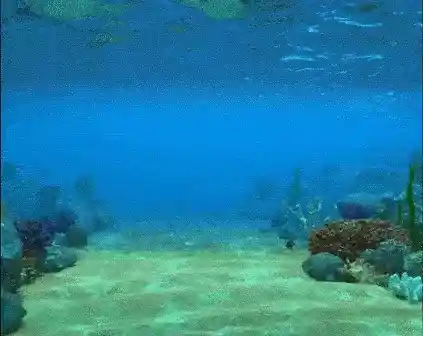- Joined
- Sep 15, 2021
- Messages
- 1,723
- Reaction score
- 5,932
- Awards
- 301
The time has come!
Infinite Jest by David Foster Wallace.
A gargantuan, mind-altering comedy about the pursuit of happiness in America. Set in an addicts' halfway house and a tennis academy, and featuring the most endearingly screwed-up family to come along in recent fiction, Infinite Jest explores essential questions about what entertainment is and why it has come to so dominate our lives; about how our desire for entertainment affects our need to connect with other people; and about what the pleasures we choose say about who we are.
About David Foster Wallace. (Taken from Britannica and Every Story is a Love Story)
Wallace was the son of a philosophy professor and an English teacher. In Highschool, he was well liked by his peers and excelled at Tennis. Around this time, he had a traumatic panic attack which led him to think about his endless loops of anxiety, he would spend nights worrying about not appearing worried, which in turn only worried him even more, leading him to act emotionally isolated from his highschool peers. To cover his anxiety, Wallace would walk around school with his tennis racket and a towel, since he suffered from excessive sweating, it gave the illusion he just came from the court. Later in life, he would wear a bandanna on his forehead to control his sweating. During this time of highschool anxiety, Wallace began showing his first symptoms of depression.
During college he studied obsessively but also developed a television addiction, he would have trouble sleeping because he stayed all night watching TV. He also struggled with pot and alcoholism. He received a B.A. from Amherst College in 1985. He was completing a master's degree in creative writing at the University of Arizona when his highly regarded debut novel, The Broom of the System (1987), was published. He later taught creative writing at Illinois State University and at Pomona College.
In his undergraduate class, Wallace was kind to the clueless but cruel to anyone with pretensions. When a student claimed that her sentences were "pretty," he scribbled lines from her manuscript on the blackboard and challenged, "Which of you thinks this is pretty? Is this pretty? And this?" He continued to battle any young man who reminded him of his younger self.
When one student wowed his classmates with a voicy, ironic short story, he took him outside the classroom and told him he had "never witnessed a collective dick-sucking like that before." Wallace promised to prevent the "erection of an ego-machine" and strafed the student with criticism for the rest of the semester.
He received a MacArthur Foundation fellowship grant in 1997.
Despite his early success, Wallace had never had close literary friends; he was too competitive, judgmental, and self-absorbed. Most literary fiction he did not care about, and what few books were worth reading were worth writing, which meant in turn that he wished he'd written them. The no-writer-friends rule was not conscious but grew out of his personality, and like most of Wallace's behavior, had a refractory edge: he also felt guilty that he felt this way, which made him all the more want to avoid the whole issue.
Wallace became best known for his second novel, Infinite Jest (1996), a massive, multilayered novel that he wrote over the course of four years. In it appear a sweeping cast of postmodern characters that range from recovering alcoholics and foreign statesmen to residents of a halfway house and high-school tennis stars. Presenting a futuristic vision of a world in which advertising has become omnipresent and the populace is addicted to consumerism, Infinite Jest takes place during calendar years that have been named by companies that purchased the rights to promote their products. Infinite Jest was notably the first work of Wallace's to feature what was to become his stylistic hallmark: the prominent use of notes (endnotes, in this case), which were Wallace's attempt to reproduce the nonlinearity of human thought on the page. Critics, who found Wallace's self-conscious, meandering writing style variously exhilarating and maddening, compared Infinite Jest to the novels of Thomas Pynchon and Don DeLillo.
Wallace's short stories are collected in Girl with Curious Hair (1989), Brief Interviews with Hideous Men (1999), and Oblivion (2004). He was also an acclaimed nonfiction writer, using his signature digressive, footnote-heavy prose to produce elaborate essays on such seemingly uncomplicated subjects as the Illinois state fair, talk radio, and luxury cruises. His essay collections include A Supposedly Fun Thing I'll Never Do Again (1997) and Consider the Lobster, and Other Essays (2005). Everything and More: A Compact History of Infinity (2003) is a survey of the mathematical concept of infinity. He also wrote, with Mark Costello, Signifying Rappers: Rap and Race in the Urban Present (1990; 2nd ed. 1997).
Wallace had suffered from depression since his early 20s, and, after numerous failed attempts to find an efficacious drug regimen, he took his own life by hanging. Three years after Wallace's death, another novel, The Pale King (2011), which the author had left unfinished, was released. A third collection of his nonfiction writing, Both Flesh and Not (2012), was also published posthumously.
Vote for your favorite book cover! (You can vote up to 3 times!)
Abacus Edition.

/Lit/ approved edition.

Original Edition.

Ñ edition.

20th Anniversary Edition.

Kindle Edition.

Italian edition.

Ñ edition 2.

Little Brown edition.

Serbian Edition.

Enjoy your reading!

Infinite Jest by David Foster Wallace.
A gargantuan, mind-altering comedy about the pursuit of happiness in America. Set in an addicts' halfway house and a tennis academy, and featuring the most endearingly screwed-up family to come along in recent fiction, Infinite Jest explores essential questions about what entertainment is and why it has come to so dominate our lives; about how our desire for entertainment affects our need to connect with other people; and about what the pleasures we choose say about who we are.
About David Foster Wallace. (Taken from Britannica and Every Story is a Love Story)
Wallace was the son of a philosophy professor and an English teacher. In Highschool, he was well liked by his peers and excelled at Tennis. Around this time, he had a traumatic panic attack which led him to think about his endless loops of anxiety, he would spend nights worrying about not appearing worried, which in turn only worried him even more, leading him to act emotionally isolated from his highschool peers. To cover his anxiety, Wallace would walk around school with his tennis racket and a towel, since he suffered from excessive sweating, it gave the illusion he just came from the court. Later in life, he would wear a bandanna on his forehead to control his sweating. During this time of highschool anxiety, Wallace began showing his first symptoms of depression.
During college he studied obsessively but also developed a television addiction, he would have trouble sleeping because he stayed all night watching TV. He also struggled with pot and alcoholism. He received a B.A. from Amherst College in 1985. He was completing a master's degree in creative writing at the University of Arizona when his highly regarded debut novel, The Broom of the System (1987), was published. He later taught creative writing at Illinois State University and at Pomona College.
In his undergraduate class, Wallace was kind to the clueless but cruel to anyone with pretensions. When a student claimed that her sentences were "pretty," he scribbled lines from her manuscript on the blackboard and challenged, "Which of you thinks this is pretty? Is this pretty? And this?" He continued to battle any young man who reminded him of his younger self.
When one student wowed his classmates with a voicy, ironic short story, he took him outside the classroom and told him he had "never witnessed a collective dick-sucking like that before." Wallace promised to prevent the "erection of an ego-machine" and strafed the student with criticism for the rest of the semester.
He received a MacArthur Foundation fellowship grant in 1997.
Despite his early success, Wallace had never had close literary friends; he was too competitive, judgmental, and self-absorbed. Most literary fiction he did not care about, and what few books were worth reading were worth writing, which meant in turn that he wished he'd written them. The no-writer-friends rule was not conscious but grew out of his personality, and like most of Wallace's behavior, had a refractory edge: he also felt guilty that he felt this way, which made him all the more want to avoid the whole issue.
Wallace became best known for his second novel, Infinite Jest (1996), a massive, multilayered novel that he wrote over the course of four years. In it appear a sweeping cast of postmodern characters that range from recovering alcoholics and foreign statesmen to residents of a halfway house and high-school tennis stars. Presenting a futuristic vision of a world in which advertising has become omnipresent and the populace is addicted to consumerism, Infinite Jest takes place during calendar years that have been named by companies that purchased the rights to promote their products. Infinite Jest was notably the first work of Wallace's to feature what was to become his stylistic hallmark: the prominent use of notes (endnotes, in this case), which were Wallace's attempt to reproduce the nonlinearity of human thought on the page. Critics, who found Wallace's self-conscious, meandering writing style variously exhilarating and maddening, compared Infinite Jest to the novels of Thomas Pynchon and Don DeLillo.
Wallace's short stories are collected in Girl with Curious Hair (1989), Brief Interviews with Hideous Men (1999), and Oblivion (2004). He was also an acclaimed nonfiction writer, using his signature digressive, footnote-heavy prose to produce elaborate essays on such seemingly uncomplicated subjects as the Illinois state fair, talk radio, and luxury cruises. His essay collections include A Supposedly Fun Thing I'll Never Do Again (1997) and Consider the Lobster, and Other Essays (2005). Everything and More: A Compact History of Infinity (2003) is a survey of the mathematical concept of infinity. He also wrote, with Mark Costello, Signifying Rappers: Rap and Race in the Urban Present (1990; 2nd ed. 1997).
Wallace had suffered from depression since his early 20s, and, after numerous failed attempts to find an efficacious drug regimen, he took his own life by hanging. Three years after Wallace's death, another novel, The Pale King (2011), which the author had left unfinished, was released. A third collection of his nonfiction writing, Both Flesh and Not (2012), was also published posthumously.
Vote for your favorite book cover! (You can vote up to 3 times!)
Abacus Edition.
/Lit/ approved edition.
Original Edition.
Ñ edition.
20th Anniversary Edition.
Kindle Edition.
Italian edition.
Ñ edition 2.
Little Brown edition.
Serbian Edition.
Enjoy your reading!

Last edited:














